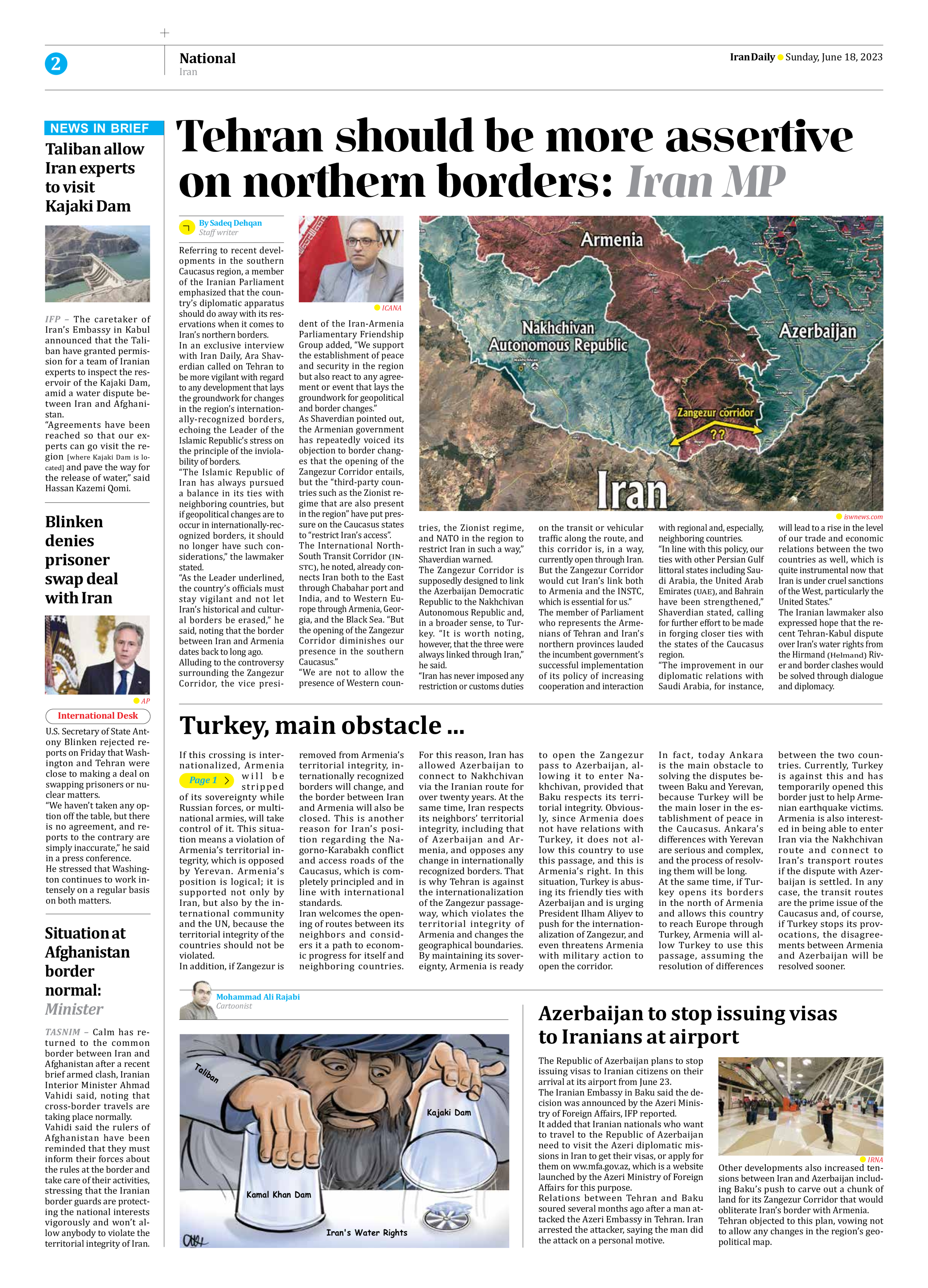
Turkey, main obstacle ...
Page 1
If this crossing is internationalized, Armenia will be stripped of its sovereignty while Russian forces, or multinational armies, will take control of it. This situation means a violation of Armenia’s territorial integrity, which is opposed by Yerevan. Armenia’s position is logical; it is supported not only by Iran, but also by the international community and the UN, because the territorial integrity of the countries should not be violated.
In addition, if Zangezur is removed from Armenia’s territorial integrity, internationally recognized borders will change, and the border between Iran and Armenia will also be closed. This is another reason for Iran’s position regarding the Nagorno-Karabakh conflict and access roads of the Caucasus, which is completely principled and in line with international standards.
Iran welcomes the opening of routes between its neighbors and considers it a path to economic progress for itself and neighboring countries. For this reason, Iran has allowed Azerbaijan to connect to Nakhchivan via the Iranian route for over twenty years. At the same time, Iran respects its neighbors’ territorial integrity, including that of Azerbaijan and Armenia, and opposes any change in internationally recognized borders. That is why Tehran is against the internationalization of the Zangezur passageway, which violates the territorial integrity of Armenia and changes the geographical boundaries.
By maintaining its sovereignty, Armenia is ready to open the Zangezur pass to Azerbaijan, allowing it to enter Nakhchivan, provided that Baku respects its territorial integrity. Obviously, since Armenia does not have relations with Turkey, it does not allow this country to use this passage, and this is Armenia’s right. In this situation, Turkey is abusing its friendly ties with Azerbaijan and is urging President Ilham Aliyev to push for the internationalization of Zangezur, and even threatens Armenia with military action to open the corridor.
In fact, today Ankara is the main obstacle to solving the disputes between Baku and Yerevan, because Turkey will be the main loser in the establishment of peace in the Caucasus. Ankara’s differences with Yerevan are serious and complex, and the process of resolving them will be long.
At the same time, if Turkey opens its borders in the north of Armenia and allows this country to reach Europe through Turkey, Armenia will allow Turkey to use this passage, assuming the resolution of differences between the two countries. Currently, Turkey is against this and has temporarily opened this border just to help Armenian earthquake victims. Armenia is also interested in being able to enter Iran via the Nakhchivan route and connect to Iran’s transport routes if the dispute with Azerbaijan is settled. In any case, the transit routes are the prime issue of the Caucasus and, of course, if Turkey stops its provocations, the disagreements between Armenia and Azerbaijan will be resolved sooner.







